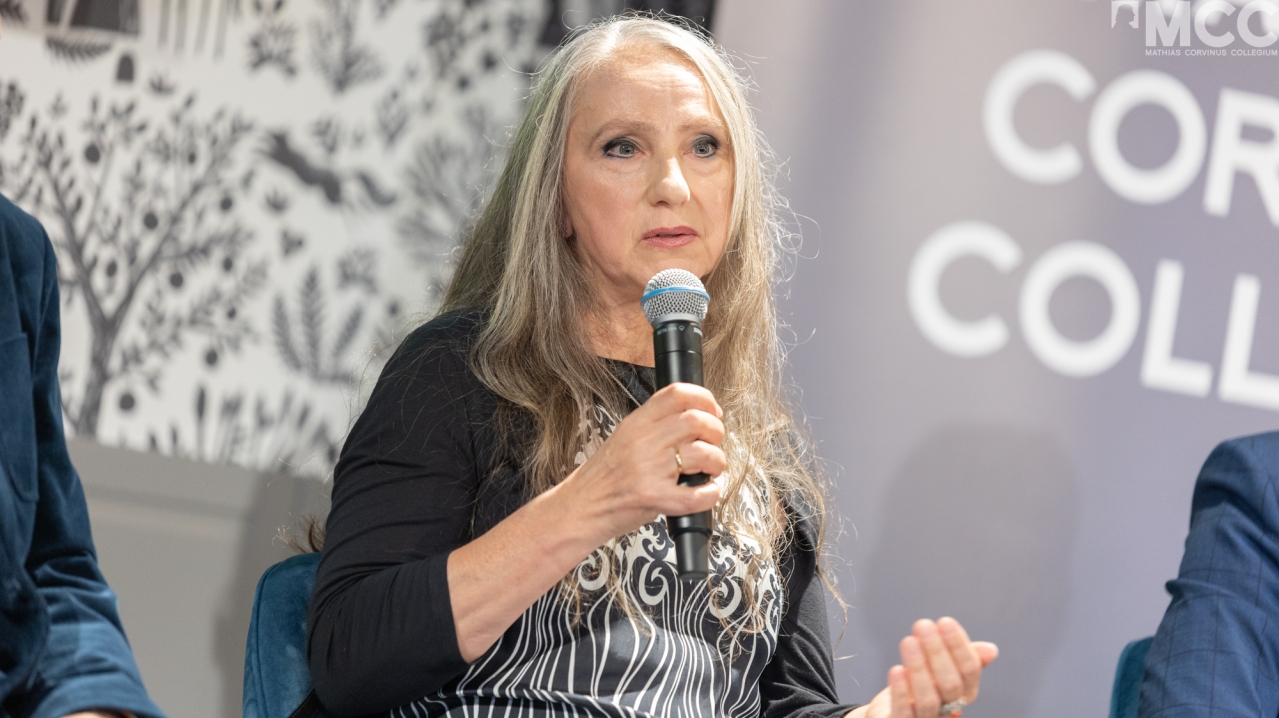Reading time: 4 minutes
The Institute for Hungarian Unity has started its activities under the direction of Gábor Margittai and Anita Major, who both have decades of experience in studying Hungarian history. It is Mathias Corvinus Collegium's sixth institute. As it was stated in a remark relating to cancel culture, one of the most dangerous trends of our days, "a nation that denies its past also denies its future".
"New threats to Hungarian identity are emerging, so the main question is no longer what is Hungarian, but how to remain Hungarian. We need to understand what holds the Hungarian nation together", said Zoltán Szalai, Director General of Mathias Corvinus Collegium (MCC), on the occasion of the launch of the new institute. The Director-General recalled the book Mi a magyar? (What makes a Hungarian) by Gyula Szekfű, published in 1939, in which, among others, Mihály Babits and Zoltán Kodály sought answers to the above question.
Answering this question is not enough any more, because in perilous times - with pandemics, wars, cultural and economic crises - only those nations will succeed who have a deep understanding of their own identity, history, traditions and art. The new MCC institute will use objective research methods and 21st century technology to seek further answers, Zoltán Szalai stressed. The istitute is led by Director Gábor Margittai and Anita Major as Deputy Director. They both have decades of experience in onducting research on Hungarian history, their authority in the field is indisputable. "Our goal is not to produce anything for the drawer", stressed Director Margittai in the discussion moderated by Zoltán Pásztor, chief program consultant at Kossuth Radio. MCC offers the opportunity to save more treasures and discover more long forgotten or hidden stories, added Anita Major.
Gergely Kitta, Director for MMC Institutes, pointed out that MCC is a one-of-a-kind educational institution with its various institutes working together in close cooperation, as a kind of fleet. In his experience, both in Hungary and abroad, institutes often work separately or in competition with each other. At MCC, the Institute for Hungarian Unity will work on joint projects together with the other five institutes (Migration Research Institute, Climate Policy Institute, Hungarian-German Institute for European Cooperation, Institute for Youth Research, Institute for Educational Research).
"A nation that denies its past also denies its future", he noted when talking about cancel culture as one of the most dangerous global trends. The work underten by the new MCC institute should be done by all nations. Fortunately, there are many good examples for that worldwide, he concluded. Márton Békés, historian and political scientist, director of the XXI Century Institute, Gábor Koltay, Balázs Béla Award-winning film director and writer, László L. Simon, writer, poet, cultural politician, director general of the Hungarian National Museum, and András Berecz, Kossuth Award-winning singer, folklore researcher and performer, addressed the participants of the opening event online. The latter summed up one of the most important assets of the new institute with a story: 'Ferenc Kósa, a Kossuth and Béla Balázs Prize-winning Hungarian film director, hitchhiked to Budapest from Nyírség in 1956. The elderly man who picked him up had a large barrel on his chariot. On the outskirts of Pest, he was stopped by people with tricolor armbands to see what was in the barrel. He calmly said: blood. The barrel was opened, and there was blood in it indeed. It turned out that there was a radio in the local pub in Nyirtas, announcing that the Revolution needed blood, so everyone cut their arms and contributed. We may safely say that the blood oath made by ancient Hungarians was repeated in Nyirtas. Of course, that blood was not fit for purpose, in a medical sense, but the souls
who contributed were. This is another story highlighting the will to live and the moral sense of Hungarian people. It is a powerful force when we see them together", concluded András Berecz.
For more information, please visit the website of the Institut for Hungarian Unity: https://magyarosszetartozas.hu/


















